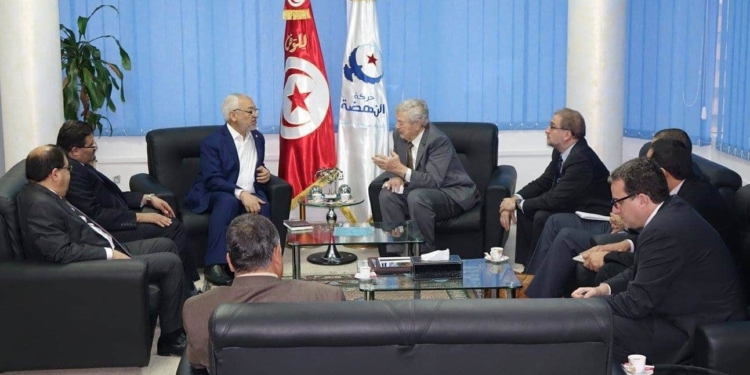From the Namaa Tounes affair to the new investigation opened in October 2025, suspicions of interference are returning to haunt the Tunisian association scene.
In Tunisia, the issue of suspicious foreign financing is resurfacing insistently. Almost three years after the Namaa Tounes affair, the public prosecutor opened, on October 22, 2025, an investigation targeting several associations suspected of having received significant funds from abroad. According to initial information relayed by the press, these would be considerable amounts, transferred under the guise of development aid or support for civil society.
Once again, the line between civic engagement and political influence seems porous.
The Namaa Tounes affair, starting point of a series of suspicions
It is in 2022 that the country discovers the extent of the phenomenon. The Namaa Tounes association, presented as an economic development structure, is then accused of having served as a financing channel for leaders of Ennahdha, the main Islamist party in the country.
Nearly a hundred executives are cited, including Hamadi Jebali, former head of government, Adel Daâdaâ and Abdelkrim Slimane, all suspected of having benefited from transfers of funds from humanitarian structures abroad.
The anti-terrorism judicial unit takes over the case, considering the seriousness of the financial flows in question. The courts refuse the release of certain defendants, considering that suspicions of foreign interference remain serious.
Also read:
“Nama” affair: Jebali and Daadaa at liberty, Mouadh Ghannouchi wanted
Constant vigilance by the authorities
Three years later, the subject resurfaces in a tense political context. The new 2025 investigation is reminiscent of that of 2024, during which the bank accounts of several associations were frozen by judicial decision.
The Ministry of Finance, supported by the Central Bank, then justified these measures by the need to “preserve the economic sovereignty” of the country.
The authorities say they want to strengthen the financial transparency of the associative sector, which has become a key player in public life since 2011, but is sometimes used for political purposes.
Also read:
An old worry: the Soros precedent
The current debates have their roots in an older episode.
In 2015, American billionaire George Soros, founder of the Open Society Foundations, was received in Carthage by Béji Caïd Essebsi. He also met Rached Ghannouchi, then leader of the Ennahdha movement.
Officially, these meetings aimed to strengthen international support for Tunisia’s democratic transition.
But they had raised questions about the influence of international foundations in the country’s internal affairs.
Also read:
Billionaire George Soros, president of the Open Society Foundation, at the Palace of Carthage
George Soros built his fortune in finance before devoting a significant portion of his resources to philanthropy.
Through its network of foundations, present in more than 120 countries, it finances projects in governance, human rights and citizen participation.
His detractors accuse him of using these levers to shape political transitions consistent with a liberal vision of democracy.
In Tunisia, his name remains associated with the emergence, after 2011, of several local NGOs inspired by Open Society programs.
Sovereignty and openness: a fragile balance
Since the revolution, the country has seen more than 23,000 associations flourish, often dependent on international donors.
If this support made it possible to support real citizen initiatives, it also opened the way to structural financial dependence.
The successive investigations reflect the difficulty for the Tunisian State to reconcile transparency, autonomy and international cooperation.
“Foreign financing is not illegal in itself, but it becomes problematic when it influences public decisions,” underlines a lawyer contacted by Webdo.
Thirteen years after 2011, Tunisia continues to seek this fragile balance: a free civic space, but preserved from the logic of interference.
A debate that the new 2025 survey will not fail to revive.
Also read:
Suspicious foreign financing: Refusal of release for Abdelkrim Slimane








